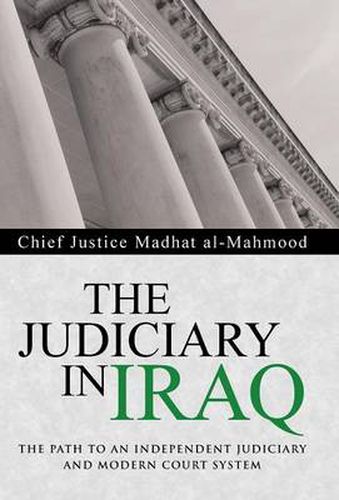Readings Newsletter
Become a Readings Member to make your shopping experience even easier.
Sign in or sign up for free!
You’re not far away from qualifying for FREE standard shipping within Australia
You’ve qualified for FREE standard shipping within Australia
The cart is loading…






This title is printed to order. This book may have been self-published. If so, we cannot guarantee the quality of the content. In the main most books will have gone through the editing process however some may not. We therefore suggest that you be aware of this before ordering this book. If in doubt check either the author or publisher’s details as we are unable to accept any returns unless they are faulty. Please contact us if you have any questions.
After simmering in the background through the nineties, Iraq burst into the awareness of many when it became a battleground against the war on terror under the Bush administration. Few realize that in the midst of the fierce policy battles, one partially implemented state-building exercise took root, and Iraq became the first country in the Middle East, democracy or otherwise, to have a constitutionally mandated independent judicial branch.In The Judiciary in Iraq, Madhatal-Mahmood, chief justice of Iraq, examines the many elements contributing to the creation of the first independent judicial branch in the Middle East in 2003, tracing the roots of the Iraqi judicial system from Islamic and Ottoman origins through to the fortuitous opportunity created by the US state-building machinery that so often misfired. Providing guidance for support to the justice sector in Iraq and to new democracies in the region, Chief Justice al-Mahmood draws on his decades of work in both academic and government sector positions to discuss why Iraqi courts were positioned for independence in 2003 and on how the new branch has expanded access to services in spite of challenges.This study examines the evolution of the judiciary and courts in Iraq, starting from pre-Islamic developments, and then moving through the impact of Ottoman and British rule before considering the role of the judiciary and courts in a modern, stable, and democratic state in the Middle East following US interventions.
$9.00 standard shipping within Australia
FREE standard shipping within Australia for orders over $100.00
Express & International shipping calculated at checkout
This title is printed to order. This book may have been self-published. If so, we cannot guarantee the quality of the content. In the main most books will have gone through the editing process however some may not. We therefore suggest that you be aware of this before ordering this book. If in doubt check either the author or publisher’s details as we are unable to accept any returns unless they are faulty. Please contact us if you have any questions.
After simmering in the background through the nineties, Iraq burst into the awareness of many when it became a battleground against the war on terror under the Bush administration. Few realize that in the midst of the fierce policy battles, one partially implemented state-building exercise took root, and Iraq became the first country in the Middle East, democracy or otherwise, to have a constitutionally mandated independent judicial branch.In The Judiciary in Iraq, Madhatal-Mahmood, chief justice of Iraq, examines the many elements contributing to the creation of the first independent judicial branch in the Middle East in 2003, tracing the roots of the Iraqi judicial system from Islamic and Ottoman origins through to the fortuitous opportunity created by the US state-building machinery that so often misfired. Providing guidance for support to the justice sector in Iraq and to new democracies in the region, Chief Justice al-Mahmood draws on his decades of work in both academic and government sector positions to discuss why Iraqi courts were positioned for independence in 2003 and on how the new branch has expanded access to services in spite of challenges.This study examines the evolution of the judiciary and courts in Iraq, starting from pre-Islamic developments, and then moving through the impact of Ottoman and British rule before considering the role of the judiciary and courts in a modern, stable, and democratic state in the Middle East following US interventions.